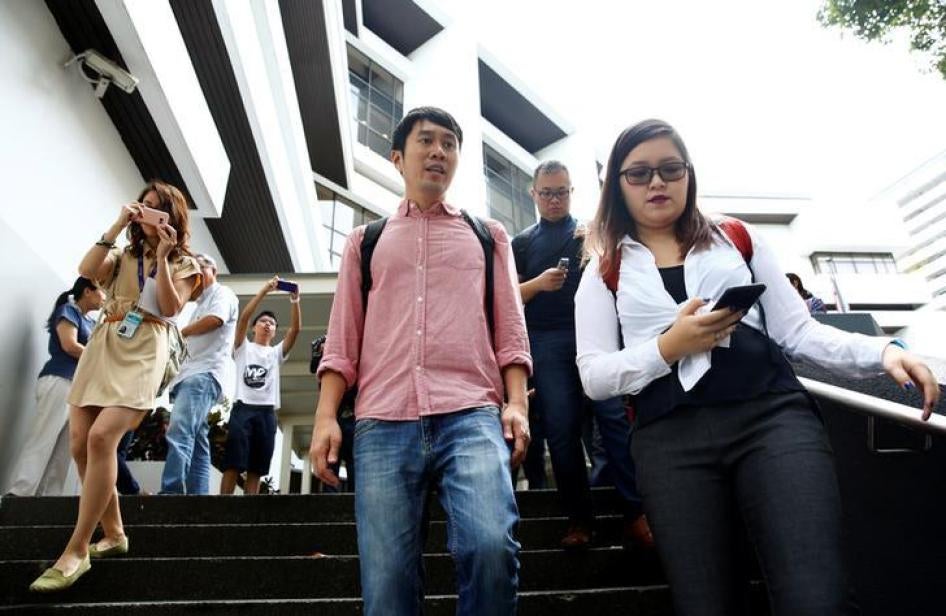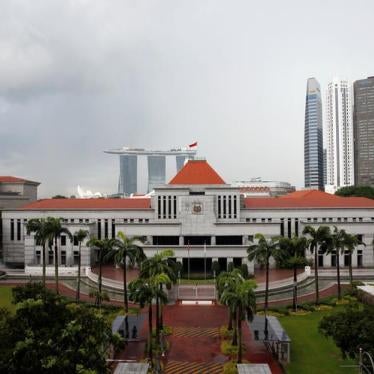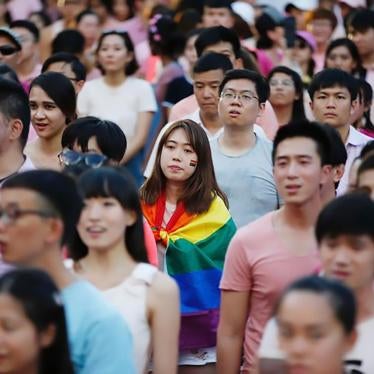(New York) – Singapore authorities should end contempt proceedings against two critics of the government for comments on social media critical of the country’s judiciary, Human Rights Watch said today.
Jolovan Wham, an activist, was charged with contempt for writing on Facebook on April 27, 2018, that “Malaysia’s judges are more independent than Singapore’s for cases with political implications.” John Tan, the vice-chairman of the opposition Singapore Democratic Party, faces contempt charges for commenting on his Facebook page that Wham’s prosecution “only confirms that what he said is true."
“Expressing an opinion about Singapore’s judiciary should not be a criminal offense, and the cases against Wham and Tan should be dropped,” said Brad Adams, Asia director at Human Rights Watch. “These cases make clear that almost any comment about Singapore’s courts can be interpreted as posing a risk – however remote or fanciful – of undermining the administration of justice, and subject the speaker to contempt proceedings.”
Under Singapore’s Administration of Justice (Protection) Act of 2016, it is considered contempt to publish anything that imputes improper motives to or impugns the integrity, propriety, or impartiality of any court and poses a risk that public confidence in the administration of justice would be undermined. Although the previous standard for contempt under the common law in Singapore was that the statement had to pose a “real risk” of undermining public confidence, the Administration of Justice (Protection) Act – which took effect in October 2017 – requires only that it poses “a risk”, however remote. Wham and Tan face up to three years in prison and a fine of up to S$100,000 (US$74,500).
The allegations against Wham and Tan highlight the vague and overbroad nature of the law, Human Rights Watch said. Singapore’s attorney-general has taken the position that Wham’s statement poses a risk to public confidence in the administration of justice in Singapore. The attorney-general suggests the administration of justice will be undermined because the “average reasonable person” would interpret Wham’s comparison of the Malaysian and Singaporean courts to mean “that the Singapore courts lack integrity and are not impartial in the discharge of judicial duties in cases where the Government of Singapore or political office holders are litigants.”
The attorney-general has also asserted that the comment does not constitute “fair criticism” of the court, which is permitted under the law, because he “did not provide any rational or evidential basis for his allegation.”
Tan faces contempt charges merely for agreeing with Wham: “By charging Jolovan for scandalising the judiciary, the AGC [Attorney-General’s Chambers] only confirms what he said was true.”
While international law does not prohibit courts from restricting speech when necessary for the orderly functioning of the judicial system, the United Nations Human Rights Committee has stated that “all public figures, including those exercising the highest political authority such as heads of state and government, are legitimately subject to criticism and political opposition… States parties should not prohibit criticism of institutions, such as the army or the administration.”
“Singapore should amend the Administration of Justice (Protection) Act to abolish the offense of ‘scandalizing the judiciary,’” Adams said. “Those who care about the administration of justice should welcome public debate concerning the courts rather than prosecuting critics.”









